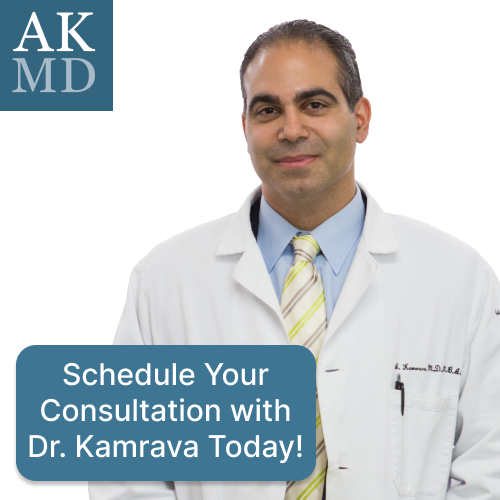Hemorrhoids are inflamed veins in the rectum or anus, and they are painful, itchy or bleeding. They are very common-in fact, almost half of the people are affected by them when they are 50 years old, and they are never really dangerous. Most hemorrhoids can be reduced or treated with certain lifestyle changes and home remedies, or in some cases medical procedures. You experience intense pain or bright red blood appearing after a bowel movement, read on to find out how to get rid of hemorrhoids.
Why do people get hemorrhoids?
Hemorrhoids develop when larger than normal pressure causes the vibration to stretch and sweat. According to the Mayo Clinic, the blood vessels around the rectum or anus are stretched and caused by various factors, primarily by straining during bowel movements, chronic constipation, protracted sitting, overweight, recurrent problems, and even heavy lifting. Aging also plays a role because as we age, tissues that connect the inner rectum and function weaken.
There are two main kinds of hemorrhoids: internal and external. Internal hemorrhoids are created within the rectum and occasionally sprinkle blood; they are usually not painful. External hemorrhoids are created under the skin around the anus and can develop itching, swelling, or pain, commonly known as thrombosis, a clot in the blood. Otherwise, they become red or blue, and lumpy.
How do I know if I have hemorrhoids show more?
One might have hemorrhoids when they are experiencing certain signs and symptoms such as pain around the anal, itching or burning sensation, inflammation or apparent lumps at the end of the anal in most circumstances, bleeding might occur from the tearing skin at the time of a bowel movement, and the victim might feel pain when they sit. In case you suspect to have hemorrhoids, the physician will conduct a digital rectal exam. Internal hemorrhoids often bleed without difficulty, and itchiness or a sensual neck occasionally bulges inferiorly external to the anal. However except for the case that it is difficult to understand, you are stupid if interpreting your signs so impatiently, but please come back to be properly diagnosed in order to know what the disease is because whom danger was thought of when there is your visit.
How to cure hemorrhoids at home naturally?
In most situations, minor hemorroids could be managed at home. The target is to reduce inflammation, relieve suffering, and avoid worsening. One thing one can do to heal fast is to take a hot sitz bed and it entails the act by sitting in a few inches of warm water three times a day for ten to fifteen minutes at a go. It can help minimize inflammation.
You could lie on the bathtub or a minor sitz basin that suits over the toilet. Do not sit in hot water in perfumed soap, though as they can add to the irritation. Redo this therapy to clean the anal region after each bowel movement. This may appear with moderate unscented wipes or gentle washcloth. Do not wipe the area too frequently, which will intensify your irritation.
Once in a while, ointments and hemorrhoid cream are not successful, but they contain over-the-counter pharmaceuticals such as hydrocortisone, Jalusi-HC, Cortizone-10, witch hazel, or lidocaine that can be utilized for relief. For more organic relief, others identify that cold compresses or ice bags might help minimize swelling and provide numb ease.
Dieting and hydration both count to your hemorrhoid treatment. A diet high in fiber will prevent and treat hemorrhoids. The idea is that it will soften your stool and promote more comfortable bowel movements that reduce any swelling of existing hemorrhoids.
Consume more fruits, vegetables whole grains, and legumes. If it’s challenging to get the necessary amount of fiber from your diet, you might consider a supplement for your fiber – psyllium husk or methylcellulose are both good options. Plus, when you consume that fiber with a glass of water—alongside eating even more food and drinking eight cups of water every day between meals—the nutrients will travel down the pipe.
In addition to processed foods, unnecessary salt, and caffeine, digesting and irritating should be discarded. You need to stay on top of bowel movements to ensure they occur regularly and relieve them promptly while they are in a relaxed position for rectal blood vessels. Six amazing lifestyle changes can help you recover. Your diet isn’t the only place where lifestyle changes are necessary. To prevent and treat hemorrhoids, use the following lifestyle modifications.
Most important, avoid the sitting position and seat, particularly on harder materials. If you have a desk job and are accustomed to long hours, use this opportunity to have an optimal period sit or stand and move around every hour. Exercise benefits promote blood circulation to the blood vessels and ease constipation. Moderate walking or yoga on a regular basis can helpTo encourage weight reduce and decrease pressure on the rectal veins, which can trigger hemorrhoids. You should not strain when going to the lavatory and do not linger on the toilet for anything longer than necessary.
If no form of home treatment works, or what if no form of home treatment works?
See your physician if the current measures have not served in one or two weeks or if the more apparent indication is apparent. Your bleeding is ongoing, way too much discomfort, the bulging does not disappear, or no simple home remedy applies. Several non-invasive remedies are available from medical professionals. Rubber band ligation will reduce the internal version of hemorrhoids’ blood supply, making them wither and fall off. Sclerotherapy is a process of injecting the chemical at the hemorrhoid’s base.
The pressure will reduce the swollen tissue, and the infrared coagulation involves applying heat that causes blood to prevent the tissue being fed from the blood. In case of large or too painful, a hemorrhoidectomy may be necessary for the operation, and a stapled hemorrhoidopexy can be used.
Can you prevent hemorrhoids?
Most of the time no. Hemorrhoids that are small, whether they bleed or prolapse, often will go away on their own with diet and relaxation at home ‒ by no means clear instead, many of those that are large have a similar likelihood of getting bigger without hemorrhoid treatment. The primary cause of a severe problem must be handled or serious constipation or extended sitting to avoid them from reappearing. Healed hemorrhoids with a blood clot, or thrombosed hemorrhoids, regularly take the time to recover. That could be extraordinarily painful and require a physician for relief and drainage.
How can you avoid a return of hemorrhoids?
Perhaps, it is simpler to avoid hemorrhoids than to treat them repeatedly. Attempt to preserve good bathroom habits. That is enough fiber, keeping enough liquid, not straining during bowel movements, not straining, and establishing regularity in going to the bathroom. Frequently exercise and do not sit too long. If necessary, employ a ring that might reduce rectum pressure. Additionally, wear smooth and roomy clothes might also help avoid discomfort. In addition, it should be kept clean and away from abrasive soaps or perfumed goods around the rectum.
What should one do if medical attention is necessary?
Most instances of hemorrhoids may be prevented by self-care, but a few require hemorrhoid treatments. If there is continuous bleeding, increasing pain or a lump that becomes quite painful or discolored, phone a doctor. Hemorrhoids are common issues, however, a variety of other illnesses, including infections, abscesses, and – very cautiously – colorectal cancer, might trigger the symptoms. Management may both provide brief relief and a long-term plan.
Conclusion
Although it may be intimidating, it is critical to diagnose the cause swiftly and seek proper hemorrhoid treatments. To learn how to get rid of hemorrhoids, begin by following the indications of your body. For most patients, temporary predication brings rapid relief. High-maintenance procedures are also successful in restoring calm. The disadvantages of hemorrhoids are not just due to treatment flare-ups. Permanent shifts avert their recurrence. Healthy eating, close observation, and listening to your body’s indicators are essential.



